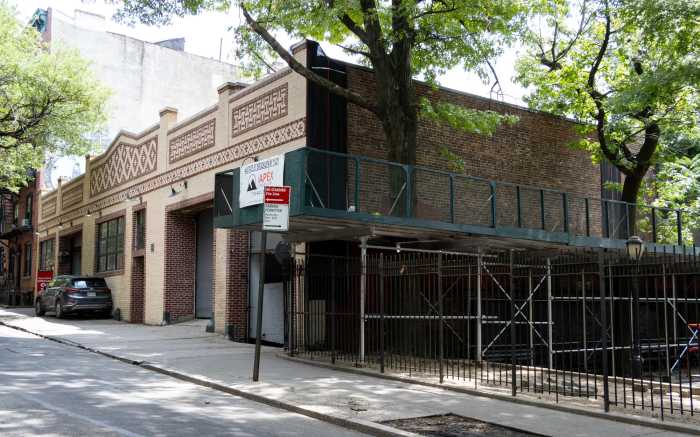A state judge ruled on Tuesday that the city can fully reopen the Brooklyn House of Detention right now — but the mayor’s controversial $440-million plan to double the jail’s capacity must go through a rigorous public and environmental review.
The warring sides each found something positive — and negative — in State Supreme Court Justice Sylvia Hinds-Radix’s split outcome over the Atlantic Avenue slammer.
The decision rejected a claim from the opponents, a group that includes Comptroller Thompson, Councilman David Yassky (D–Brooklyn Heights) and neighborhood organizations, that the city must conduct a public review to reopen the jail at all.
The 11-story prison has been closed since 2003 — a period when neighboring Boerum Hill has rapidly gentrified.
The Department of Correction suggested it would repopulate the 759-bed House of D sooner rather than later.
“With many aging facilities on Rikers Island continuing to deteriorate, and knowing that defendants in the city’s jails will always be best served when they are held closer to their courts and communities, we will continue to reduce our reliance on Rikers Island,” Commissioner Martin Horn said.
The critics were saddened that the jail would reopen at all, but comforted by Hinds-Radix’s verdict that the plans to build a second tower and increase capacity to 1,469 prisoners must undergo a full public review.
“The Department of Correction was trying to pull a fast one here,” said Yassky, who was “thrilled” with the decision. “It, in effect, wanted to build a new jail without going through the process that requires the City Council’s approval, but the judge said, ‘Wait a minute, Buster.”
Neighbors hoped that the necessary environmental study and votes by Community Board 2, Borough President Markowitz, the City Planning Commission and the City Council would help them defeat the enlargement of the jail.
“That’s what it is needed — a full public review,” said Sandy Balboza, head of the Atlantic Avenue Betterment Association. “We’ve never got answers to those questions about the impact of the expansion on the neighborhood. We did well here [in court].”

























